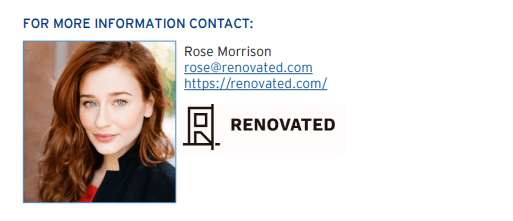Inflation-related headlines send chills down the spines of commercial real estate (CRE) players. Although rising prices aren’t all bad, they can negatively impact your cash flow when uncontrolled.
Follow these nine tips to avoid losing revenue during periods of high inflation.
Download Printable Article (PDF) >>>

(1) Rethink Your Fees
Getting less value from what you charge for CRE management due to inflation is a compelling reason to revisit your fee structure.
The building’s size, condition and amenities and the extent of your services are deciding factors. For instance, smaller properties may command higher fees because you may have to personally oversee them and do tasks usually delegated to other staff in bigger buildings.
Moreover, the types of CRE subject to more stringent regulatory requirements cost more to manage. Medical facilities, industrial warehouses and food processing factories are prime examples. You must have specialized training to ensure these properties are compliant, so you should get adequate compensation.
An inflationary economic environment is an excellent opportunity to switch from a percentage fee to a flat fee or vice versa. Each arrangement has pros and cons, so study which makes more sense for your business and investors.
Keep your competitiveness in mind when rationalizing your fee. Charging more can make you less attractive to investors, so study what your peers are doing to avoid appearing greedy compared to
them.
(2) Reexamine Your Costs
Inflation may force you to tighten your belt, so look for opportunities to cut costs without hurting your business. You may be overspending on staff wages, contractor fees, emergency repairs, software subscriptions and mortgage interest payments. Consider the following to curb your spending:
- Use specialists — like an accountant and digital marketer — on an as-needed basis instead of keeping them on staff to reduce your labor costs.
- Ensure regular property maintenance to head off surprise, expensive structural damage.
- Keep and extend equipment warranties to minimize your out-of-pocket repair and replacement expenses.
- Shop around for a more affordable property management software subscription and tenant screening service.
- Refinance your loans to snag lower interest rates.
- Furthermore, use human resources efficiently. Monitor how your staff spends their time to ensure maximum productivity. Reduce their hours if necessary to get more value from your management budget.
(3) Screen Tenants More Effectively
High tenant turnaround typically stems from poor screening and aggravates inflation’s impact on cash flow. If you have numerous vacancies, you may feel enormous pressure to accept any tenant to start collecting rent. Letting in shady renters can expose you to various risks and indirectly inflate your costs down the road.
Conduct a thorough risk assessment regardless of how desperate you are to increase your occupancy rate. Use reputable tenant screening tools to do background checks, obtain credit reports and review historical rental data. Looking at your candidates’ business prospects and references is also a sound practice. Sealing the deal with tenants with multiple financial backers that can step in to settle the bills is always a good idea. Otherwise, scrutinize your prospects’ business models and financial projections to evaluate their risk of defaulting.
(4) Negotiate for Longer Leases
Long-term leases mean financial security, helping maintain a high occupancy rate amid market uncertainties. Brush up on your negotiation skills to persuade tenants to commit long term. Determine what compromises you’ll be willing to make to handle counter offers well and ultimately arrive at favorable scenarios for all parties.
(5) Leverage the Rent Escalation Clause
This entitlement is a classic inflation hedge. You can generally base rate increases on a predetermined percentage or fixed amount. Alternatively, you can escalate rent hikes using the consumer price index.
This subject is a typical bone of contention during lease negotiations, so enter talks prepared. Experienced commercial property managers are ready with pushback. Consider numerous proposals
based on various rent escalation methods if the discussions drag on. Scarcity is a driver of CRE price and rent increases. The problem is that office space demand has plummeted since the pandemic. Warehouse construction has also soared 1,400% since 2010.
You’ll need to be extra slick in your negotiating tactics to get what you want if the type of commercial property you’re managing has a high inventory.
(6) Raise Tenants’ Expenses Share
Adjusting your tenants’ share of overhead costs — like utilities, insurance, maintenance, and local and state property taxes — is necessary to offset inflation and keep the CRE investment profitable.
Like the rent escalation clause, such costs must be in black and white to ensure everyone’s on the same page and prevent disputes that can hurt tenant retention.
(7) Improve Collections
Failing to receive rent on time and in full weakens your ability to fight inflation. Miscommunication, manual collection, slow payment clearing and improper documentation are some costly mistakes to avoid.
Do everything to make rental payments painless for your tenants. Sending reminders, offering multiple fast and secure payment options, and setting up automatic rent and late-fee collection are
effective practices. You should also make transaction history easily accessible and keep detailed records.
Use credit reporting as an incentive to entice punctual payments. Gamifying your collection procedure gives tenants another reason to pay what they owe when expected.
(8) Embrace Automation
Automating processes can shrink your labor costs and streamline operations. Tech-savvy commercial property managers usually automate these areas:
- Tenant onboarding
- Renter communication
- Document management
- Rent collection
- Maintenance request management
- Vendor management
- Inspections and compliance
- Expense tracking and reporting
- Lease renewal notification
CRE management automation solutions cost money but are generally worth the expense. They help eliminate your process inefficiencies and increase tenant satisfaction.
(9) Put a Premium on Tenant Retention
Finding a tenant is usually more expensive than retaining one, so do your best to keep the ones you have happy. However, it is tricky to convince tenants to stay when trying to jack up their costs through rent escalation and an increased share of overhead expenses. Being responsive to their sentiments, maintaining excellent communication, taking feedback seriously and bending the rules for the outstanding ones go a long way.
If your tenants have second thoughts about renewing their leases, consider offering discounts and accommodating reasonable requests to keep their business.
Manage What You Can to Combat Inflation
What goes up must come down. Unfortunately, it’s hard to know when inflation will ease. Enhance your business acumen with these tips to ride out sustained rising prices if the type of CRE you
manage is more prone to the prevailing weather economic storm.
Rose Morrison is a residential and commercial real estate writer and the managing editor of Renovated. To see more of her work visit: https://renovated.com/


